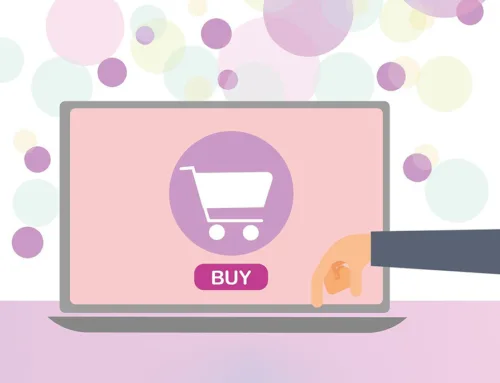The beauty about having an online store is that there’s absolutely no restrictions on who you can sell to and from where. It also takes a lot less financial commitment to start up an online store than it does for a brick and mortar business. However, running an online store is not easy. It can take some time before people know about your business and trust you enough to hand over their hard earned cash. Still, with a bit of luck, hard work and adopting the following few pointers, you’ll be able to grow your online store to the point where you can compete with some of the big names.
1. Have an engaging website
It doesn’t matter how great or how affordable your products and services are, if customers can’t find them on your website, then your chances of success are quite slim. A study carried out by Kissmetrics found that at least 93% of customers consider the visual appearance of a website to be an important factor in their purchase decision. This means that every aspect of your website – from navigation to content, shopping cart and checkout – should be designed with customers in mind. Your job is to make it easy for customers to get the information or item they need easily and with minimum hassle.
2. Include a detailed ‘About us’ page
Online shoppers are not too crazy about handing over their hard earned cash to businesses they know nothing about. This is why an ‘About us’ page is possibly one of the most important pages on a website, if not the most visited. It allows you the opportunity to tell your customers a little bit about the business, and helps give it a personality or face. When creating your ‘About’ page, try not to fill it up with irrelevant information. What your customers want to know is: who you are, what you can do and how your business can help them. Your contact information and a few reviews should also feature on your ‘About’ page. Just ensure you don’t overwhelm your visitors with too much information.
3. Make payments easy
The last thing customers want is to visit your website, select items that they want, only to find they cannot pay. This shows a lack of seriousness on your part and may discourage them from coming again. When setting up your online store, note that while PayPal is basically the ‘go to’ payment option, aim to provide a variety of payment solutions that makes it easier for shoppers to pay for what they want. Also, ensure your payment system is designed in such a way that customers can create an account and save their payment information for future purchases.
4. Be active on social media
The dynamics of doing business have changed significantly with the advent of social media. Now, with people spending more and more of their time on different social media platforms, it follows that as an ecommerce business, you should do the same. Social media provides many benefits and opportunities for a business owner, including a cost effective means of targeting the exact type of people who would be interested in the type of operations your business performs. If you’re willing to take it a step further and spend some money, you can direct target ads to these people. Also, social media works as a great customer service tool. You can engage both old and new customers on social media, answer questions, solve problems and basically show your business to be a customer oriented brand.
5. Build credibility with reviews
Almost every consumer will first consult a review about a product or service before making any commitment to buy. This demonstrates just how important testimonials and reviews are. It shows how credible your brand is and lets new customers see how satisfied your previous customers are. Unlike a regular brick and mortar store, whereby customers can walk in and see what’s for sale in person, online shoppers rely on the feedback of previous shoppers to gauge the trustworthiness of online stores. This is why it’s a good idea to include ratings on product pages to help future shoppers know what other people think. So, give your customers a gentle nudge to leave reviews after buying by using incentives like discounts.
6. Be on your SEO game
“SEO is the fuse that sets your website on fire”, says Brad of Domains4Less, New Zealand’s foremost hosting provider. When people search for anything relating to your business, it is your level of SEO that will determine if your website shows up in search results. By incorporating the relevant SEO keywords and terms into your content, you can greatly increase the chances of your website ranking high on SERPs for relevant search. This is essentially the key to improved traffic, improved conversion and an increase in sales. For many people, SEO is a tough nut to crack, so you may need to engage the services of a specialist to do it right.
7. Mobile is an advantage
You’re probably reading this article on your mobile phone; if not, the chances are you perform a large part of your internet activity using your mobile device. The same is true for many people all over the world. The use of mobile devices as a means for consuming content online has grown tremendously in recent years, and the ecommerce industry is not left out. The bulk of your customers will likely visit your online store using their mobile devices. Subsequently, if your website is not built in such a way that it displays perfectly on mobile, you’re likely to lose a lot of customers. Ensure your website can display properly on desktop, as well as on mobile devices. Doing this now will place you ahead of the competition, as experts predict that by 2020, shopping on mobile devices will account for about 45% of ecommerce sales.
8. Spy on the competition
Finally, one other thing you can do to grow your online business is to keep an eye on the competition. It goes without saying that there are several things you can learn when you study how the competition goes about their ecommerce business. For instance, are they offering a 30 day money back return policy as opposed to your 14 days? What incentives are they offering their customers that you can replicate? Figure out what makes them different and so how you can adapt it to your own business.





